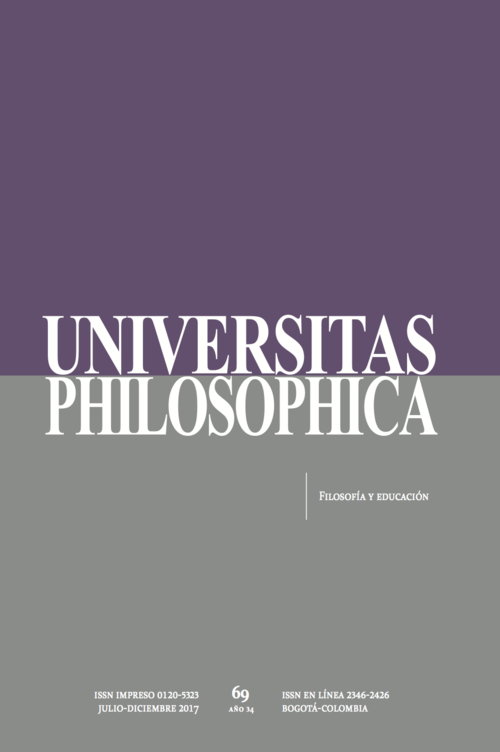Resumen
La influencia de la fenomenología husserliana en los inicios del pensamiento de Paul Ricoeur, en donde este elabora una fenomenología de la voluntad, es un tema de común acuerdo entre los especialistas. A este respecto, una de las herencias husserlianas más evidentes de las descripciones fenomenológicas ricoeurianas de lo voluntario y lo involuntario es el método de descripción eidética, que sitúa a la imaginación en un lugar privilegiado. La relación que puede encontrarse en estas reflexiones entre los temas de la imaginación y la voluntad, creemos, puede darnos una perspectiva novedosa para repensar las problemáticas de la educación en la época contemporánea. Así, en el presente artículo, luego de presentar algunas de estas problemáticas de la educación desde la perspectiva de Ricoeur, buscaremos una posible respuesta a ellas desde aquel ámbito de la fenomenología ricoeuriana en donde se cruzan los temas de la imaginación y la voluntad.
Esta revista científica se encuentra registrada bajo la licencia Creative Commons Reconocimiento 4.0 Internacional. Por lo tanto, esta obra se puede reproducir, distribuir y comunicar públicamente en formato digital, siempre que se reconozca el nombre de los autores y a la Pontificia Universidad Javeriana. Se permite citar, adaptar, transformar, autoarchivar, republicar y crear a partir del material, para cualquier finalidad (incluso comercial), siempre que se reconozca adecuadamente la autoría, se proporcione un enlace a la obra original y se indique si se han realizado cambios. La Pontificia Universidad Javeriana no retiene los derechos sobre las obras publicadas y los contenidos son responsabilidad exclusiva de los autores, quienes conservan sus derechos morales, intelectuales, de privacidad y publicidad.
El aval sobre la intervención de la obra (revisión, corrección de estilo, traducción, diagramación) y su posterior divulgación se otorga mediante una licencia de uso y no a través de una cesión de derechos, lo que representa que la revista y la Pontificia Universidad Javeriana se eximen de cualquier responsabilidad que se pueda derivar de una mala práctica ética por parte de los autores. En consecuencia de la protección brindada por la licencia de uso, la revista no se encuentra en la obligación de publicar retractaciones o modificar la información ya publicada, a no ser que la errata surja del proceso de gestión editorial. La publicación de contenidos en esta revista no representa regalías para los contribuyentes.


